Former Riverhead Town Supervisor Laura Jens-Smith, a Democrat, will be going against Riverhead Town Councilwoman Jodi Giglio (R) for the 2nd Assembly District. Currently held by incumbent Assemblyman Anthony Palumbo (R-New Suffolk), he is leaving his seat to run for New York State Senate against Laura Ahearn (D).
Both Jens-Smith and Giglio have been active in the East End communities for years, with long-standing political careers.
Elected the first woman supervisor in Riverhead Town’s 225-year history, Jens-Smith, 57, defeated longtime Republican-Conservative incumbent Sean Walter in 2017. During her tenure there, she said she helped revitalize downtown Riverhead and served one two-year term before losing to Yvette Aguiar (R) in November. But before that role, she served as a member and president of the Mattituck-Cutchogue school district board of education and had a long career as a nurse. She is the mom of two children.
Giglio, 52, has served as Riverhead Town councilwoman since 2010. A small business owner, she owns Bennett Enterprises LLC., a construction management and land-use business based out of Riverhead and has been a member of the International Union of Operating Engineers Local 138 since 2015. She co-founded Riverhead Business Alliance and is a mother of three.
TBR News Media spoke to both candidates by phone to discuss COVID-19, the environment, agriculture, the brain drain and bail reform.
Environment
Jens-Smith noted that to address water quality and septic systems, a lot of things can be done, but they are attached to a dollar amount.
“Having been a supervisor of a town, a lot of this, addressing this issue, is done at a small municipal level where it becomes cost prohibitive,” she said. “So, we really need to invest the money at the state level, to deal with this on Long Island as a whole.”
She said the county needs to prioritize remodeling septic systems close to the water and that more research should be put into it. In order to upgrade a unit to a new, better system, it needs to become more cost effective for the general public.
“We have to make it affordable, especially in moderate and low-income areas,” she said.
As a Riverhead councilwoman, Giglio has put several initiatives into effect. She has worked with Suffolk County Department of Health Services, the town Conservation Advisory Council and the town board to adopt requiring sanitary systems to be upgraded.
“I think that getting sanitary systems out of groundwater and getting sewer systems or cluster sewer systems is very important,” she said. “I believe in starting small and making sure that it works and then going big. That’s why I started in the watershed areas and spoke at the Suffolk County legislative meeting, saying that they should focus on the watershed areas first and those systems that are actually sitting in groundwater.”
Agriculture
Jens-Smith has been working hard with the Long Island Farm Bureau to continue growing different crops that help the economy of the East End. “I think that we need to work together to find solutions to be able to keep the family farm here,” she said. “It’s a huge industry, and I think sometimes people overlook how big the farming industry is in the state of New York and on Long Island.”
She said that preserving farmland is instrumental, and she wants to come up with more ways to keep preserving it. “Once it’s gone, we know it’s gone,” she added.
Giglio agreed, saying that preserving farmland out east is a priority for her. So far, she said she has preserved over 2,000 acres of farmland and worked closely with farmers who are hurting from the COVID-19 pandemic.
Brain Drain
Both candidates agree that Long Island is losing too many people because they cannot afford to stay here.
“We cannot continue to tax our middle class off of Long Island,” Jens-Smith said. “We need to take a hard look at every single line item to make sure that we’re not becoming a community where we have the very wealthy; people that are not in the middle class, that they’re living under the poverty level, or they’re very low income — and we’re squeezing out the middle class on Long Island.”She said Long Island is not what it used to be: affordable with a strong middle class and with good paying wages. The former supervisor said that when the middle class has money, they spend it on local businesses and give back to the economy.
“We’ve lost that here on Long Island, and we need to get back to that,” she said. “We need to make sure that when we pass the laws, and we pass legislation, that we’re keeping the middle class and the working class in mind, so that we can continue to sustain ourselves here.”
She added that there should be multiple levels of affordable housing, especially for educated young people that will change as salaries increase.
“I also think we need to be able to work with some of the companies that are here on the Island — some of the major employers — and encourage them to provide housing, also for their workers when they start out,” she said. “We have talent here. Our kids are talented here. They’ve all had a great education provided via public schools. We have good community colleges here. We have good state universities here, and we need to be able to take all of that and harness all of that, and then attract the businesses to come and want to develop here.”
Giglio agreed. “We spend a fortune on Long Island, educating our kids only to see them leave the Island because it’s too expensive to live here,” she said.
Since the councilwoman came into office, she has been pushing to convert the former Grumman facility in Calverton into an industrial park that will bring high-tech jobs and “create the Silicon Valley of the West Coast here on the East Coast.”
“I think now’s the time to do it,” she said. “With technology changing every day, it’s getting great companies to keep our youth here and to create high paying jobs. I see Grumman as the nest for it.” She added that creating affordable housing around the site in the downtown areas with better busing situations would help.
Bail Reform
Jens-Smith believes that bail reform should have some judge discretion in it. “I obviously think that it’s unfair and unconstitutional that somebody with a minor crime sits in jail because they can’t pay bail,” she said. “But I think that if there is evidence that there is a harm to the community by somebody being not detained until their court date, I think there needs to be some judge discretion with that.”
Giglio also agreed, saying it was bad that discretion was taken away from the judges. “Especially in a small court system like Riverhead has, where our judges know who the repeat [offenders] are,” she said. Giglio believes that nonviolent offenders should not have to sit in jail because they cannot afford bail, but she recognizes the stress it puts on local officers who see people walk out “an hour later.”
“They’re there for hours after doing paperwork, missing their kids’ birthday parties and their anniversary dinners,” she said. “And the same crime is getting repeated over and over again.”
Giglio said she has been working to convert the old armory into a YMCA to help keep kids out of trouble.
“I think we need to create more facilities for our youth, and I think YMCAs are great,” she said. “I think we need to create more teen centers, and more availability and access isn’t going to be hard with the 20% cut in funding for the school districts.”
COVID-19
Jens-Smith thinks that as the pandemic continues throughout the remainder of the year and into next, communication with the state Legislature is important, especially communication with local legislatures that understand what Long Island is going through.
“I think we’re all facing different challenges based on our populations and the amount of people living in an area,” she said. “I think that that input needs to be taken into account, and I think they need to speak up and make sure that that they are being heard a little bit louder than what’s going on right now.”
Giglio had several first-hand accounts with the virus and worked throughout the pandemic to donate resources to hospitals when masks were unavailable. She is continuing to fight for businesses that are suffering post-pandemic, like the catering and restaurant industries on the Island. On Oct. 15, she held a rally outside the H. Lee Dennison Building in Hauppauge asking Gov. Andrew Cuomo (D) to lift restrictions on catering hall capacity.
“I had that press conference because those people’s lives are really on hold,” she said.


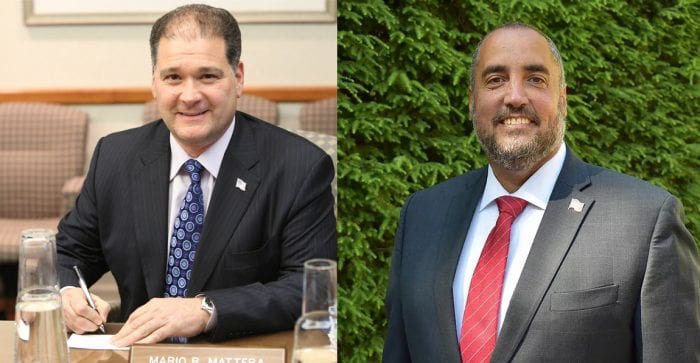
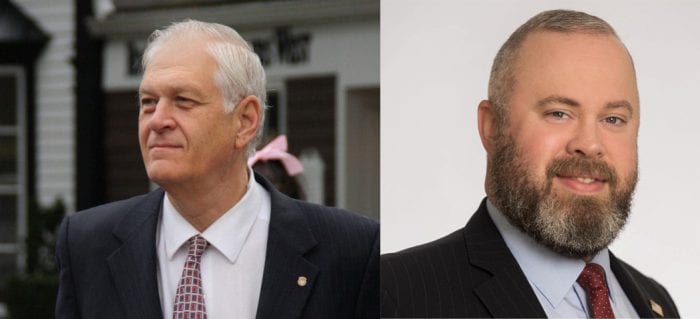


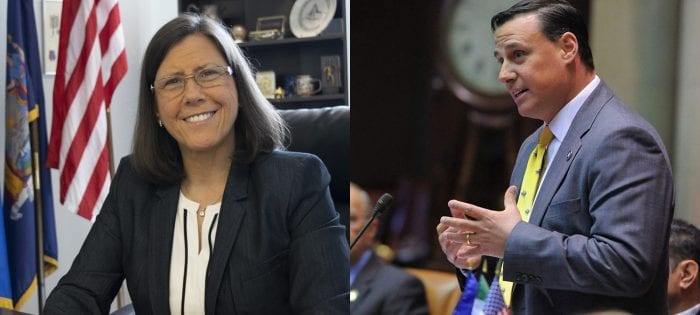
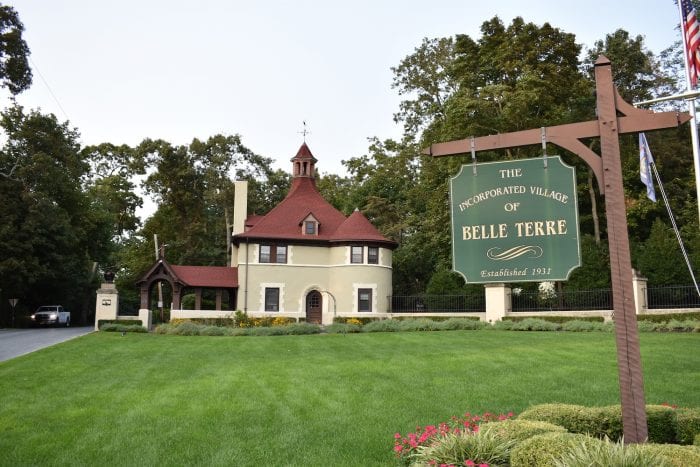
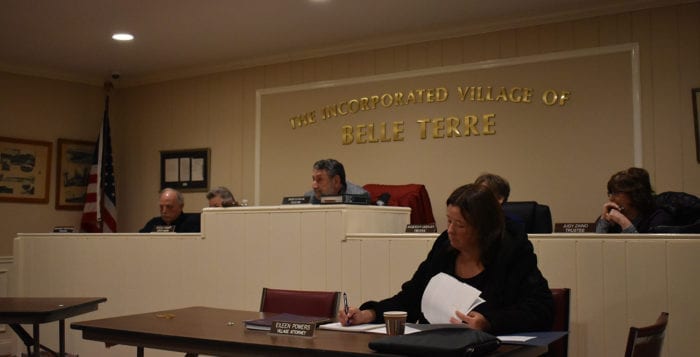

 Bob Sandak
Bob Sandak



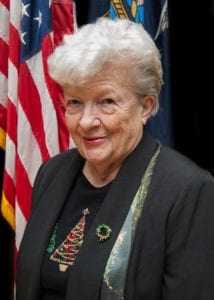 1. Items 1a, 1b,and 1c require the assistance of the Suffolk County Board of Elections. It is suggested that you contact them by email so you spend time on a long phone hold:
1. Items 1a, 1b,and 1c require the assistance of the Suffolk County Board of Elections. It is suggested that you contact them by email so you spend time on a long phone hold:



